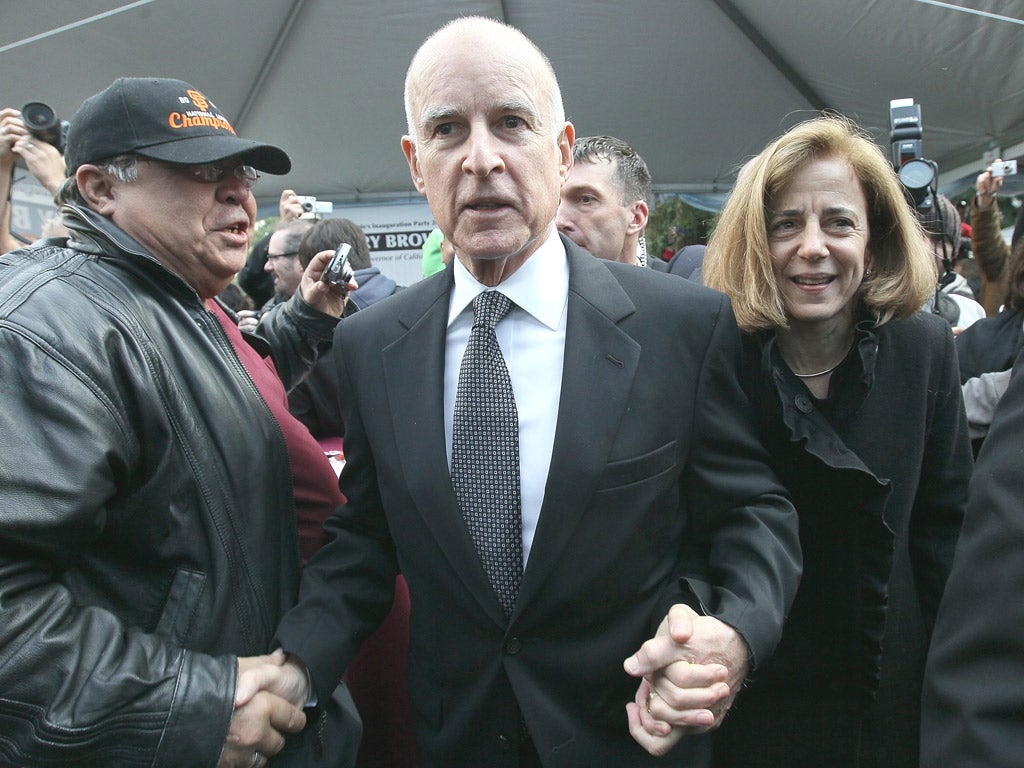Why reports on Australia's kangaroos made California's Governor hopping mad
Struggling state shocked to discover it produces dozens of bizarre research papers that no one reads

Your support helps us to tell the story
From reproductive rights to climate change to Big Tech, The Independent is on the ground when the story is developing. Whether it's investigating the financials of Elon Musk's pro-Trump PAC or producing our latest documentary, 'The A Word', which shines a light on the American women fighting for reproductive rights, we know how important it is to parse out the facts from the messaging.
At such a critical moment in US history, we need reporters on the ground. Your donation allows us to keep sending journalists to speak to both sides of the story.
The Independent is trusted by Americans across the entire political spectrum. And unlike many other quality news outlets, we choose not to lock Americans out of our reporting and analysis with paywalls. We believe quality journalism should be available to everyone, paid for by those who can afford it.
Your support makes all the difference.A story of tax, spending and kangaroos is at the centre of the latest unlikely effort to make California's cash-strapped government more efficient.
In a bizarre but headline-grabbing move, Jerry Brown, the Governor of America's most populous state, has launched a vigorous attack on the surreal level of interest that his civil servants are required to take in Australia's national animal. For as long as anyone can remember, officials in California's Department of Fish and Game have been required to supply law-makers with a carefully compiled annual report on the Antipodean kangaroo harvest.
The lengthy document, which costs an undisclosed amount to produce, was introduced decades ago at the behest of the animal rights lobby. Its stated purpose is to ensure that the small quantity of kangaroo-skin shoes and handbags that find their way into the state's fashion boutiques come from a properly sustainable source.
Last week, Mr Brown, a Democrat, declared it a symbol of the Kafkaesque bureaucracy that is hobbling his administration. A "crocodile report" was among a staggering 715 similarly useless reports which are compiled by civil servants on a regular basis, and are now being scrapped in the hope of reducing the state's gaping budget deficit, which is currently running at $9bn (£5.6bn) a year. "It wastes a lot of time and money to write, track and file all these reports," Mr Brown declared.
The list of paperwork the Governor proposes to abolish has provided a sobering insight into the bureaucratic excess which, despite endless soul-searching about America's national debt, continues to hobble every tier of government.
In recent years, under Mr Brown and his predecessor, Arnold Schwarzenegger, California has sacked thousands of teachers and almost doubled tuition fees at its universities in a fruitless effort to balance its budget without raising taxes. Yet despite the belt tightening, government employees in the state capital, Sacramento, have quietly carried on churning out ream after ream of apparently pointless paperwork.
Every month, for example, a report on the official response to the Loma Prieta earthquake lands with a thud on the desks of state politicians. For what exact purpose, no one can tell: the earthquake happened in 1989. A "feasibility study on the establishment of a California State Redwood logging museum in north-western California" was commissioned in 1990. More than 20 years later, it is still being published. But of the museum, there is no sign.
The state's financial crisis has its roots in laws that mean tax rises must be approved by 60 per cent of politicians – a majority that neither major party is ever likely to achieve. It was exacerbated by the 2008 housing crash, which decimated income from property tax, the mainstay of the state's finances.
California's overall debt is now around $40bn and is set to rise to $50bn by 2013. The Governor was unable to say exactly how much his latest exercise in cost-cutting would save.
Join our commenting forum
Join thought-provoking conversations, follow other Independent readers and see their replies
Comments